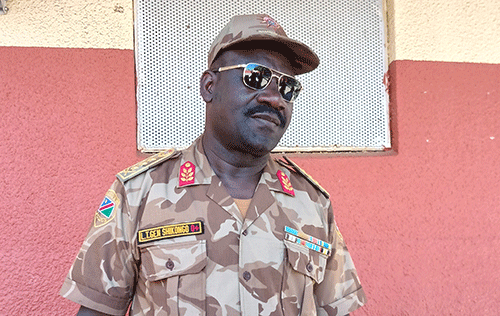The Inspector General of the Namibian Police, Joseph Shikongo, has reminded road users with outstanding warrants of arrest for traffic violations to check the system before travelling.
He made these remarks in an interview with New Era this week, following the circulation of lists containing names of traffic offenders with unpaid fines, shared widely on social media platforms such as WhatsApp.
Shikongo confirmed the authenticity of the lists, emphasizing that they are legitimate and valid.
He cautioned that offenders who fail to rectify their situation may face arrest at roadblocks.
“Once a traffic officer stumbles upon them during a roadblock, the warrant of arrest will be executed, and they will be sent to custody,” he explained.
While acknowledging concerns over the inappropriate manner in which the lists were circulated—resulting in the disclosure of individuals’ personal details—Shikongo maintained that the offenders must settle their fines to avoid legal trouble.
“The list stands. Those people must go and pay for the fines so they will not find themselves in trouble with the law,” he reiterated.
The Namibian Police revealed that approximately 148,000 drivers nationwide are at risk of arrest for various traffic violations as the festive season approaches.
Shikongo identif ied Khomas, Otjozondjupa, Oshana, Omusati, and Erongo as the regions with the highest number of warrants of arrest but declined to provide specific figures for each region.
Last week, Oshikoto Police released a list of 1,323 motorists with traffic violations dating back three years who are now subject to arrest for failing to settle their fines.
The Inspector General assured the public that the police are prepared to ensure road and public safety during the festive season.
“We are ready to maintain safety. We have already launched operations in all 14 regions.
I caution road users to prioritize safety and urge members of the public to adhere to road safety tips,” he stated.
He further noted that the police remain committed to minimizing road accidents and ensuring a safer environment for all during this busy travel period.


